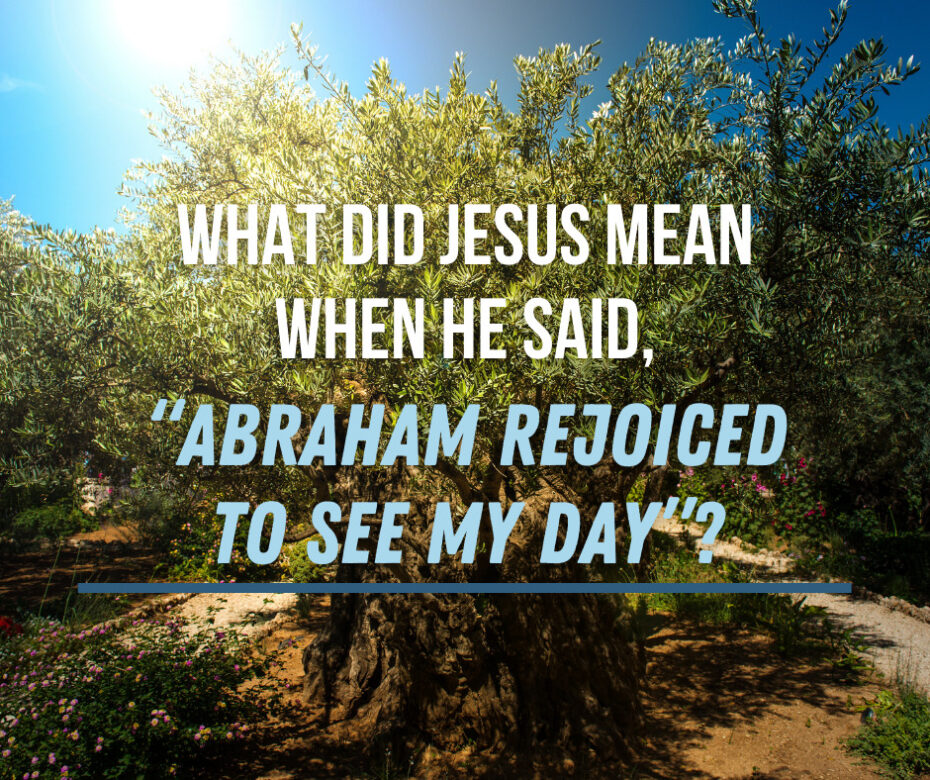Here is another question from our recent annual conference:
John 8:56 says, “Abraham rejoiced to see My day—and He saw it was glad.” If people say that Abraham was not rejoicing about the forgiveness of sins and eternal life that Christ would bring, what do they say he was rejoicing about?
First, let’s answer the question asked. What do most commentators think that Abraham rejoiced about?
Blum writes, “How much of the messianic times God revealed to His friend Abraham is unknown. But it is clear that he knew of the coming salvation and he rejoiced in knowing about it and expecting it” (BKC, vol. 2, p. 306).
Morris favors the view that Abraham “rejoiced at the prospect of the Messiah being born from his descendants” and that “Abraham looked forward to the day of the Messiah and rejoiced in it” (John, p. 418).
Both Morris and Brown point out that in recent years “the interpretation has gained ground that John means that after Abraham died, he saw Jesus’ day” (Brown, John 1-12, p. 359). That is, after word reached Hades that the Messiah had been born, Abraham and the other OT believers with him rejoiced. However, both reject this view.
Carson suggests that Abraham rejoiced to see “the messianic age” (John, p. 357).
Those are representative views.
It should be noted that none of these commentators suggest that Abraham rejoiced during his lifetime that he was eternally secure. Blum comes closest to that view. But his comment refers to an expectation, which is not necessarily the same thing as a certainty.
Second, I do not think it is accurate to say that Abraham rejoiced “about the forgiveness of sins and eternal life that Christ would bring.” That would suggest that forgiveness and everlasting life was future to Abraham’s day. But Abraham knew that he was forgiven, justified, and regenerate (Gen 15:6). A better way to understand this statement is that Abraham knew that he was eternally secure and that he would be in Messiah’s kingdom. That knowledge caused him to rejoice. Compare Heb 11:10.
Jesus’ listeners were angry with Him over this statement about Abraham. Why? The rabbis had long taught that Abraham had a vision during his lifetime of the coming Messiah and His kingdom. It is therefore unlikely that they would have been angry had Jesus said, “Abraham rejoiced to see Messiah’s day.” Carson puts it this way: “The point of tension arose because of the way Jesus phrases this: not ‘Your father Abraham rejoiced to see the messianic age’, but ‘Your father Abraham rejoiced to see my day’. The ‘day’ or the ‘day of the Lord’ becomes Jesus’ day” (Carson, John, p. 357). Jesus was using Abraham to support His claim that He is the Messiah who guarantees everlasting life to all who believe in Him.


